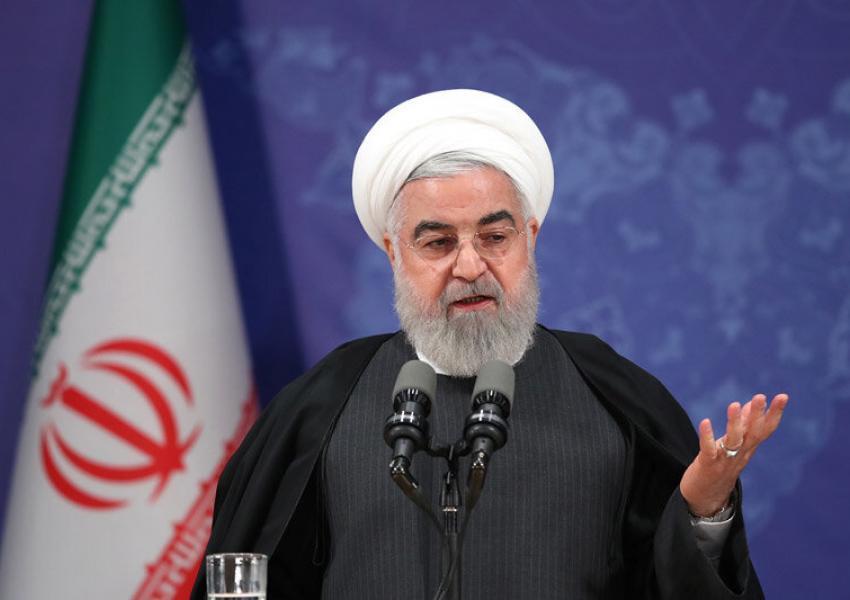
Rouhani Rues Missed Chance Over Iran Nuclear Deal And Lifting Sanctions
President Hassan Rouhani told the cabinet Wednesday that agreement over reviving Iran’s 2015 nuclear deal with world powers, lifting stringent United States sanctions, was possible as early as March but had been missed because parliament passed legislation in December requiring the expansion of Iran’s nuclear program.
Formal talks with world powers in Vienna did not start until early April, by which time Iran had, as required by parliament, increased its level of uranium enrichment to 20 percent and reduced its co-operation with the International Atomic Energy Agency (IAEA). The legislation was passed in December amid anger in parliament − with a principlist majority since last year’s elections − at November’s killing of nuclear scientist Mohsen Fakhrizadeh.
These steps accelerated those already taken by Iran since 2019 breaking limits set by the 2015 deal (the JCPOA, Joint Comprehensive Plan of Action), which was abandoned by President Donald Trump in 2018 before imposing draconian US sanctions on Iran targeting its oil exports and financial sector.
Both the Trump sanctions and the expansion of Iran’s nuclear program have complicated the challenges in reviving the JCPOA faced in Vienna, where the US is indirectly participating in formal discussions of remaining JCPOA members – China, France, Germany, Iran, Russia and the United Kingdom.
Rouhani, who is leaving office in August after being ineligible in June’s presidential election to seek a third successive term, said that aiming to “lift the oppressive sanctions and realize the rights of our nation” had been an aim of both his administrations, first in negotiating the JCPOA and later in trying to revive it once President Joe Biden took office in January this year.
Rouhani called Trump “a politically insane man” who had acted “under pressure from Israel, Saudi Arabia, regional extremists and the United States, and the Mujahideen” – the exiled Mujahideen-e Khalq opposition group. Rouhani pointed to a favorable economic situation, including growth and lower inflation, when the JCPOA was in operation, and said his governments had shown that diplomacy was an effective way to solve problems.
"Our economic growth was number one in the world in 2016 when we had a double-digit economic growth rate,” Rouhani said. “All that was achieved in the shadow of negotiations and anyone who says a different thing is a liar.” Growth was 13 percent in 2016, but fell to 4 percent in 2017 after Trump’s election, and to minus 6 percent in 2018 as Trump began his ‘maximum pressure’ sanctions.
Foreign Minister Mohammad Javad Zarif said Monday that the nuclear talks were being left to the incoming administration of President-elect Ebrahim Raisi (Raeesi), who assumes office in August. While Raisi said during the campaign he would accept reviving the JCPOA if “in the people’s interests,” he was supported by many who have consistently opposed the agreement and who have been staunch critics of Rouhani’s economic and foreign policies.
The Vienna talks have struggled to agree which US sanctions are incompatible with the JCPOA, and how Iran’s developed nuclear program − in which older centrifuges, the devices used for enriching uranium, have been replaced by more advanced models – should be squared with JCPOA limits.
Rouhani and his officials have always argued that Iran’s decisions over the nuclear program are collective, sometimes referencing “the regime”, meaning ultimately Supreme Leader Ali Khamenei. But Rouhani’s speech to cabinet Wednesday carried more than a whiff of opportunities being missed.





